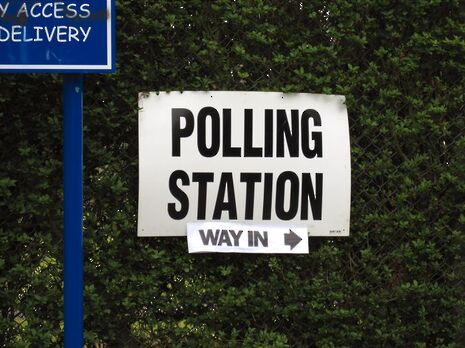Don’t let student voter apathy decide the outcome of Brexit
Professor Catherine Barnard explains the importance of student voter registration in determining the outcome of the EU referendum

What are your plans for June 23rd? Packing your tent, wellies and a sense of anticipation for the start of Glastonbury? Preparing to graduate? Getting a job? Or just chilling at the start of the long vacation?
Thursday 23rd June. Now you mention it, there has been a lot about that date in the news. It is, of course, when voters must make the most important decision for a generation in the EU referendum. At a guess, you didn’t bother with the recent police and crime commissioner elections. Londoners will perhaps have voted to choose a new mayor. But no poll – not even a general election – will have such a profound effect on this country’s future as the EU referendum, especially for the young who will have the longest to live with the consequences. Yet survey evidence shows that 18-24 year-olds are the least likely to be registered to vote, let alone actually turn up to vote. The problem has been exacerbated by a recent rule change on voter registration. Once, universities and colleges could register all of their students to vote en bloc. Now students (or their families) have to register themselves. This requires organisation.
It is true that timing for the EU referendum could not be worse. High summer, with all of its accompanying attractions and distractions, each seemingly more important for a given individual than the future of the UK in or out of the EU. If the survey evidence cited in the Guardian is correct, in the 18-34 age group, just over half (52 per cent) said they were certain to actually go out and vote. Only 43 per cent of 18-24 years olds voted in the 2015 general election. If young people do not register to vote and then actually vote they may find themselves with an outcome they do not want. Let the result, whichever way it goes, be down to choice, and not be the by-product of apathy.
The Electoral Reform Society is also concerned that the EU referendum campaign has not engaged young people. Its research shows that 21 per cent of 18 to 24-year-olds say they are very interested in the EU referendum, compared with 47 per cent of those over 65. So what can the universities do? This past week, Monday 16th - Friday 20th May 2016, was student EU referendum voter registration week. Universities UK is working with a range of partners, including the National Union of Students, the Cabinet Office, and the Association of Colleges to promote a major registration drive at university campuses and FE colleges across the UK. Activity will range from on the spot registrations with tablets to registration reminders in lectures. Various organisations, such as the ESRC’s UK in a Changing Europe programme (in which I am involved), requires its fellows to engage with the public as much as possible – in a strictly non-partisan way – to inform them about the EU. This has involved school events and town hall meetings, with the latter format attracting the more mature clientele. We always underline the importance of voter registration. And it is easy to register to vote: there is a simple online form to complete and you can ask for online voting.
A common complaint we hear at the town hall events is that people feel that the issues are so difficult that they are ill-equipped to make a decision. Decades of failure by the education system to inform students about the rudiments of what the European Union is – and does – is coming home to roost. ‘What does Brexit mean?’ is currently one of the most frequent Google searches about the EU. The town hall audiences often ask for facts: clear, unvarnished, non-partisan facts.
The appetite for ‘the facts’, for greater knowledge, and for understanding of the pros and cons of a debate, is often drowned out by the noise of the campaign. There is a deep mistrust of politicians and both sides of the campaign. Both sides have made hyperbolic claims and this confuses people further. Ultimately, which way to vote is a question of judgment: is the UK, on balance, better off outside the EU or in it? The more facts are made available to voters, the more it will help them with making their decision. But for those not even registered to vote, their views will not be heard. And this is a serious matter for young people.
Professor Catherine Barnard is senior tutor of Trinity College, Cambridge and senior fellow of the ESRC’s UK in a Changing Europe Programme.
 News / Uni Scout and Guide Club affirms trans inclusion 12 December 2025
News / Uni Scout and Guide Club affirms trans inclusion 12 December 2025 News / Pembroke to convert listed office building into accom9 December 2025
News / Pembroke to convert listed office building into accom9 December 2025 Features / Searching for community in queer Cambridge10 December 2025
Features / Searching for community in queer Cambridge10 December 2025 News / Uni redundancy consultation ‘falls short of legal duties’, unions say6 December 2025
News / Uni redundancy consultation ‘falls short of legal duties’, unions say6 December 2025 News / Gov declares £31m bus investment for Cambridge8 December 2025
News / Gov declares £31m bus investment for Cambridge8 December 2025








